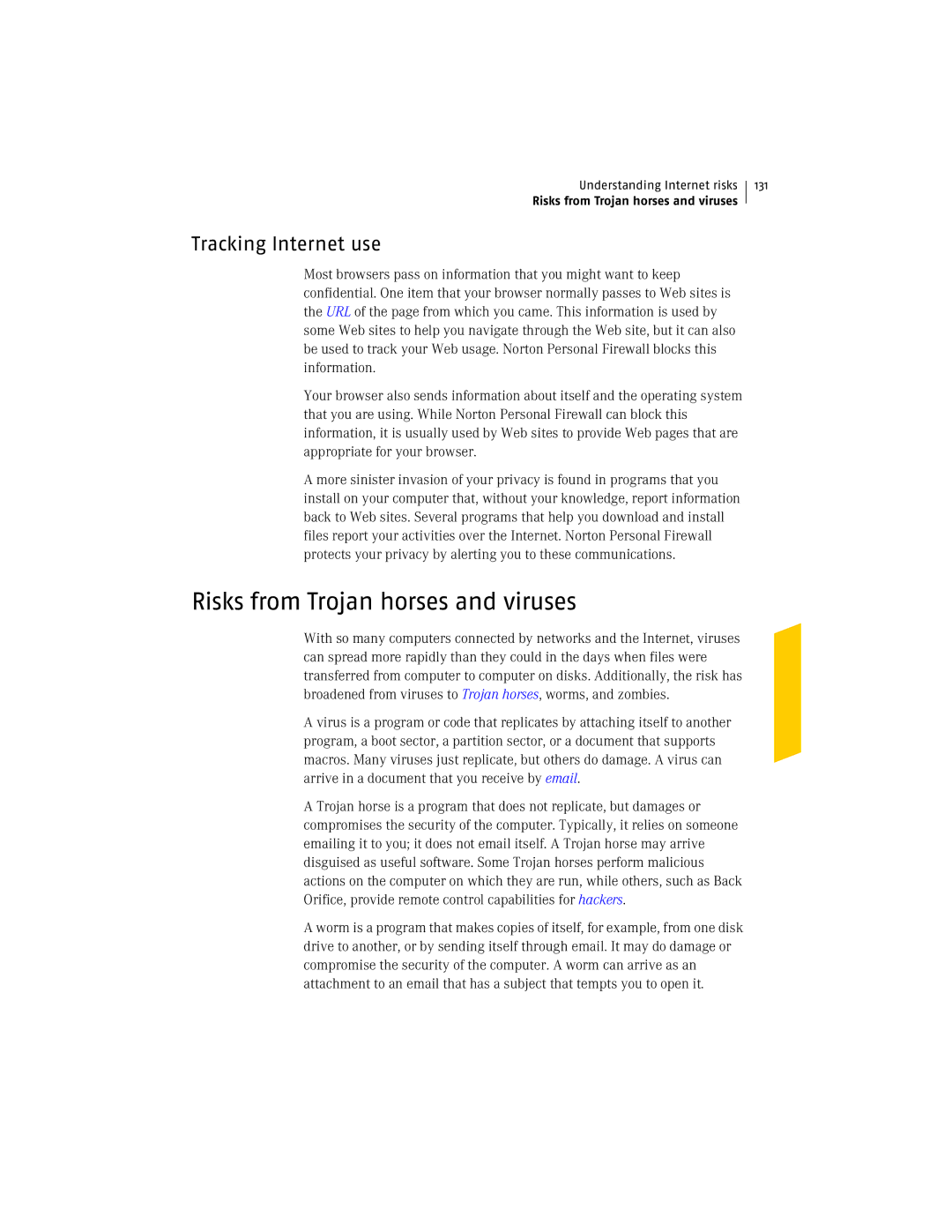Understanding Internet risks
Risks from Trojan horses and viruses
131
Tracking Internet use
Most browsers pass on information that you might want to keep confidential. One item that your browser normally passes to Web sites is the URL of the page from which you came. This information is used by some Web sites to help you navigate through the Web site, but it can also be used to track your Web usage. Norton Personal Firewall blocks this information.
Your browser also sends information about itself and the operating system that you are using. While Norton Personal Firewall can block this information, it is usually used by Web sites to provide Web pages that are appropriate for your browser.
A more sinister invasion of your privacy is found in programs that you install on your computer that, without your knowledge, report information back to Web sites. Several programs that help you download and install files report your activities over the Internet. Norton Personal Firewall protects your privacy by alerting you to these communications.
Risks from Trojan horses and viruses
With so many computers connected by networks and the Internet, viruses can spread more rapidly than they could in the days when files were transferred from computer to computer on disks. Additionally, the risk has broadened from viruses to Trojan horses, worms, and zombies.
A virus is a program or code that replicates by attaching itself to another program, a boot sector, a partition sector, or a document that supports macros. Many viruses just replicate, but others do damage. A virus can arrive in a document that you receive by email.
A Trojan horse is a program that does not replicate, but damages or compromises the security of the computer. Typically, it relies on someone emailing it to you; it does not email itself. A Trojan horse may arrive disguised as useful software. Some Trojan horses perform malicious actions on the computer on which they are run, while others, such as Back Orifice, provide remote control capabilities for hackers.
A worm is a program that makes copies of itself, for example, from one disk drive to another, or by sending itself through email. It may do damage or compromise the security of the computer. A worm can arrive as an attachment to an email that has a subject that tempts you to open it.
